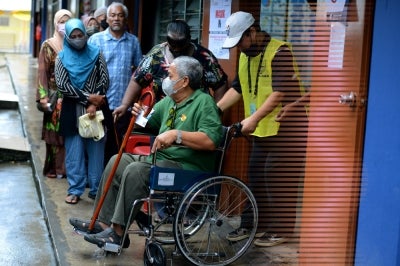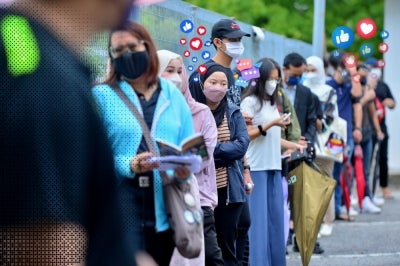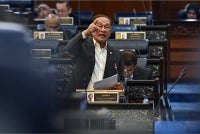PKR's power play: Rafizi vs Nurul Izzah - The ultimate battle of influence and vision
The contest is not just about who becomes number two in the party but also about determining the country’s future political trajectory.


ALOR SETAR – The showdown between two key figures of Parti Keadilan Rakyat (PKR), Datuk Seri Rafizi Ramli and Nurul Izzah Anwar, for the party’s deputy president post is seen not only as a contest of personalities and leadership, but also as a reflection of PKR’s future direction.
Political analyst Dr Ahmad Zaharuddin Sani Ahmad Sabri said the contest is not just about who becomes number two in the party but also about determining the country’s future political trajectory.
As a core party in the Pakatan Harapan (PH) government, PKR’s internal decisions have a direct impact on the national political landscape.
He said both candidates have their own strengths and weaknesses, making it difficult for grassroots members to choose.
“Rafizi is known as a sharp and outspoken political strategist. He was a key driver behind PH’s major election victories, including playing an important role in exposing the 1MDB and NFC (National Feedlot Corporation) scandals.
“His expertise in economic analysis and data brings the progressive voice desired by young voters and the middle class.
“However, his firm attitude and approach, which is considered less diplomatic, may cause discomfort within the party.
“Tense relations with other leaders as well as his cold past relationship with Datuk Seri Anwar Ibrahim are feared to trigger internal cracks,” he told Sinar Harian.
Zaharuddin said Nurul Izzah, known as the ‘Puteri Reformasi’, carries the symbolic legacy of the reform movement that is the foundation of PKR.
“She presents a moderate personality, is clean and liked by many both inside and outside the party, making her a popular candidate among grassroots members.
“Nurul Izzah is often regarded as the most ideal young leader to unite all factions within the party. Being the daughter of the Prime Minister can be an advantage but may also raise issues of nepotism related to family politics.
“She is seen as too soft and lacking the courage to make important decisions. Her political involvement is also inconsistent after ‘taking a break’ from politics, and her administrative experience is considered less prominent compared to Rafizi,” he added.
He said Rafizi appears to dominate in popularity, especially among urban voters, young generations, and the middle class, due to his courage and progressive approach.
“His success through the Ayuh Malaysia campaign and his boldness in voicing current issues have made him a respected political icon.
“He is also active on social media, which helps raise his profile.
“However, his influence is less evident in rural areas and northern states like Kedah and Kelantan, where voters are still tied to traditional political ties,” he said.
Meanwhile, Nurul Izzah, he said, has the advantage of sentimental support because she is Anwar’s daughter.
“The population still loyal to the old reform narrative sees her as the political heir of Anwar.
“But her popularity is uneven, and she is more favoured in certain areas like the Klang Valley and Penang.
“Her decision to ‘retire’ from politics (2018-2019) may have reduced her political momentum,” he said.
Zaharuddin also expressed concern over open support by state leadership for certain candidates.
“Although it is seen as normal in party democracy, it can trigger the existence of factions and camps within PKR.
“Dominance of support from certain states can cause internal conflicts that ultimately threaten party stability.
“It creates a bad perception and becomes ammunition for opposition parties to exploit the confusion by claiming PKR is a divided party,” he said.
He added that the existence of factions may indicate differences in ideology and vision for the future.
“Rafizi’s camp may lean towards reform and data-driven political approaches. Nurul Izzah’s camp may focus more on reform values and political idealism.
“Such rivalry is often seen as a double-edged sword. It shows mature internal democracy but failure to control the narrative or tensions can cause significant losses to the party,” he said.
He also said this contest is not just about competing for the deputy president post, but is a test of PKR’s political maturity in managing differences and maintaining unity after the election.
“The party’s history shows internal competition that is not managed well leads to betrayal and splits, such as after the 2018 election when Datuk Seri Mohamed Azmin Ali and his group left PKR in the Sheraton Move,” he added.
Download Sinar Daily application.Click Here!















